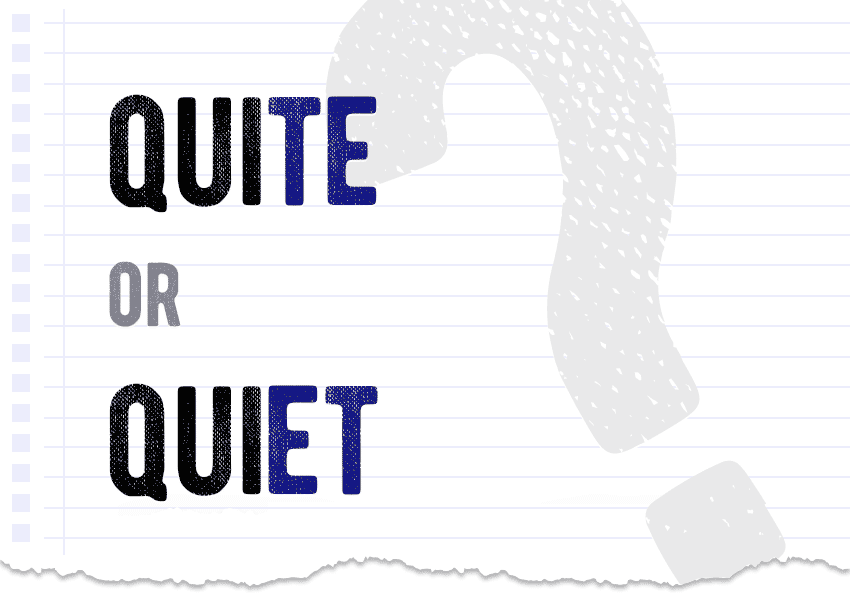Quite or quiet — which spelling is correct?
Spelling can be a real pain in the dictionary. The longer the word, the worse it gets, but even short words may cause consternation. Take for example, quite and quiet. Let’s have a little investigation and explore the difference between these words.

Quiet or quite — is there an incorrect spelling?
Quiet, pronounced as /kwaɪət/, and quite pronounced as /kwaɪt/ are two unrelated words of altogether different meaning. As it often happens in case of very similar words, they are often misspelled:
Quiet or quite — find out about their meaning
Quiet is an adjective, which means ‘making a little or no noise’, and ‘having little activity or excitement’.
Quite is an adverb, which means either ‘a little but not completely’ (and one of my native English friends claims that this usage is preferred by the Brits) or ‘a lot but not completely’. So, when someone says ‘I am quite tired’, they may either mean they are a little tired, or literally exhausted. Quite a riddle, isn’t it?
Quite or quiet and some useful phrases
To be honest, or speaking quite frankly, the idiom I like best, and I think is really quite a something is not quite the clean potato, meaning ‘something immoral, inappropriate or otherwise troubling’.
If you are looking for some peace and quiet, go somewhere warm and quiet. Try to be quiet as a mouse/a lamb, so quiet that you could hear a pin drop, and have some quiet reflection on the intricacies of English.
Quiet and quite in literary examples
Unseen in the background, Fate was quietly slipping lead into the boxing-glove.
P. G. Wodehouse, Very Good, Jeeves!, 1930
I was quiet, but I was not blind.
Jane Austen, Mansfield Park, 1814
There is nothing like looking, if you want to find something. You certainly usually find something, if you look, but it is not always quite the something you were after
J. R. R. Tolkien, The Hobbit, 1937
I’m quite illiterate, but I read a lot.
J.D. Salinger, The Catcher in the Rye, 1951


